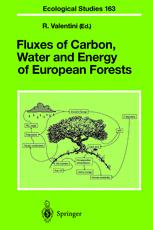

Most ebook files are in PDF format, so you can easily read them using various software such as Foxit Reader or directly on the Google Chrome browser.
Some ebook files are released by publishers in other formats such as .awz, .mobi, .epub, .fb2, etc. You may need to install specific software to read these formats on mobile/PC, such as Calibre.
Please read the tutorial at this link: https://ebookbell.com/faq
We offer FREE conversion to the popular formats you request; however, this may take some time. Therefore, right after payment, please email us, and we will try to provide the service as quickly as possible.
For some exceptional file formats or broken links (if any), please refrain from opening any disputes. Instead, email us first, and we will try to assist within a maximum of 6 hours.
EbookBell Team

4.3
58 reviewsAfter years of technological development and its important achievements to make our life easier and more comfortable, human society is going to face one of the most difficult challenges of the last century: to stabilize the concentra tion levels of greenhouse gases in the atmosphere to prevent harmful effects on the climate system. Through a delicate balance between photosynthesis and respiration, terres trial ecosystems, and in particular forests, are today thought to take up a sig nificant part of the carbon dioxide emissions in the atmosphere, sometimes called the "terrestrial carbon sink". However, the location, magnitude, and vulnerability of the carbon dioxide sink of the terrestrial biota are still uncer tain. The suite of traditional tools in an ecologist's toolbox for studying ecosys tem productivity and carbon balance include leaf cuvettes, whole-plant and soil chambers for gas exchange, and biomass and soil carbon inventories. While each of the cited methods has distinct advantages, they are limited with regards to their ability to measure net carbon dioxide exchange of the whole ecosystem across a variety of time scales. This book present a compendium of results of a European project (EURO FLUX), funded by the European Commission through its fourth framework program, aiming to elucidate the role of forests in continental carbon balance.